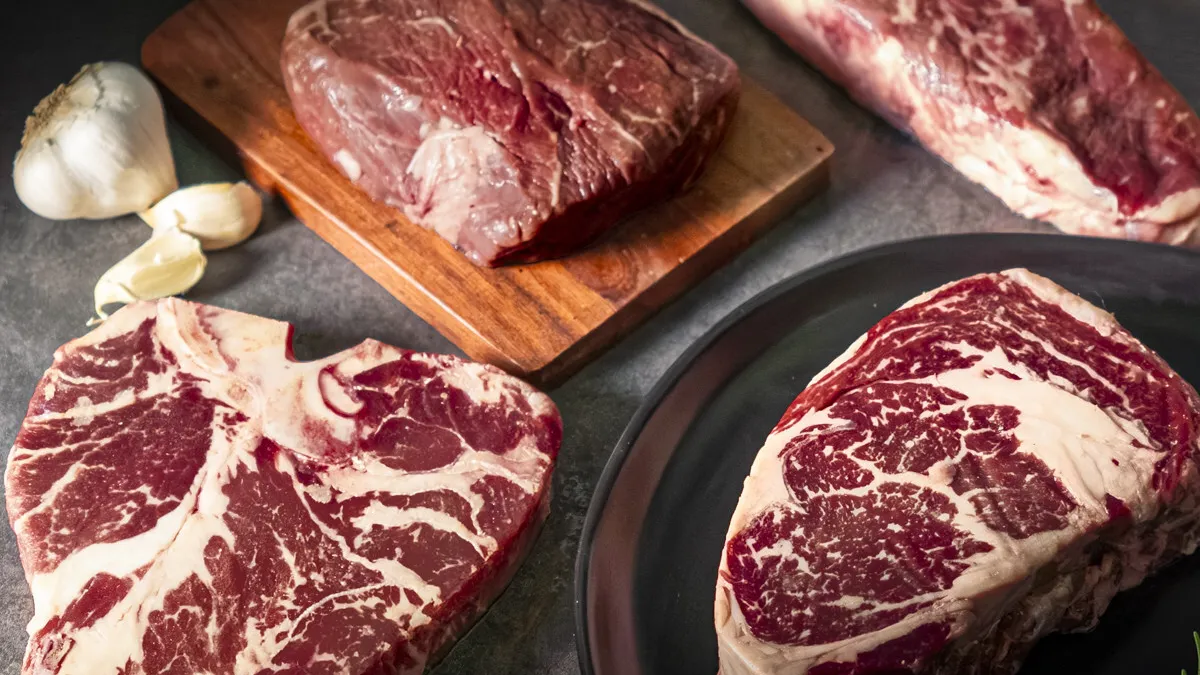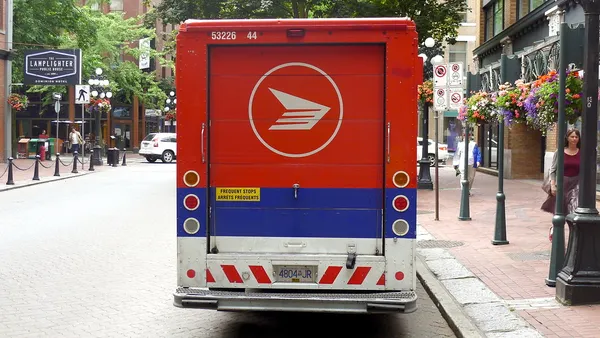MeatWorks just wasn't growing fast enough for its own liking — until the company began delivering to more addresses.
The seller of USDA Prime steaks raised its growth ceiling in October by launching free two-day shipping across the contiguous U.S. for its beef, chicken and pork products. While MeatWorks had long been interested in expanding its shipping capabilities, it took time to find the right combination of delivery speed and reliability, Kelsey Eklin, MeatWorks' general manager, said in an interview with Supply Chain Dive.
"We wanted to launch in a smaller market to gauge interest in the products initially, but then we ran into a bit of a snag with nationwide shipping due to the ability to ship in a timely manner, cost effectively," Eklin said.
The Chicago-based company previously offered shipping in Illinois and surrounding states before expanding to offer delivery to locations it could reach in two days via ground transportation.
"It actually was a pretty big area, it just left out some parts of Florida, parts of the Northeast and a lot of the West, just given the geography and ability to ship," Eklin said.
Now, MeatWorks reaches 48 states, leaning on a third-party fulfillment partner and FedEx to manage the shipping process. The company has seen order volume increase about 50% to 60% since the expansion, with many of the new orders coming from ZIP codes in previously unserved places like California, Eklin said.
But the transition required supply chain adjustments. MeatWorks had to source more product from farms ahead of October's launch to get ahead of an anticipated spike in demand from customers it previously couldn't reach. That extra product also provided its fulfillment partner with reassurance that it wouldn't have to scramble to bring in more MeatWorks products, Eklin said.
"We work really closely with that fulfillment team to ensure that they were prepared for increased volumes, had dry ice on hand and had shipping products on hand," Eklin said.
To prevent spoilage during transit, MeatWorks seals its products individually in flash-frozen packaging, with dry ice levels calibrated for each shipping route and corresponding weather conditions. But even with those measures in place, MeatWorks still needs carriers to deliver its products quickly.
"Your Amazon package can get delayed 10 days, it doesn't matter, right?" Eklin said. "Where this gets delayed three days and it’s a gone package, it's thawing at that point."
With those risks in mind, MeatWorks wanted the right combination of on-time reliability and cost in a carrier partner before committing to nationwide shipping, which eventually led it to choose FedEx.
"Our fulfillment partner that we're now working with has found that FedEx has the better on-time delivery record," Eklin said.
MeatWorks ships products to New Jersey, where its fulfillment partner's main hub is located, for eventual delivery to end customers by FedEx. As MeatWorks' volume grows, it will eventually transport inventory to other U.S. locations the partner has, Eklin said.
Additional shipping locations will help MeatWorks be more flexible in serving its customers effectively. MeatWorks also wants to increase its shipping frequency — orders are processed and shipped on Wednesdays each week — to multiple days, but expanding that right now would be too expensive, Eklin said.
For companies planning on growing their own shipping capabilities, Eklin recommended finding the right fulfillment partner to plan with prior to any expansion. She also offered more straightforward advice.
"Don't go on vacation the week of launch," Eklin said.
Editor's note: This story was first published in our Logistics Weekly newsletter. Sign up here.















